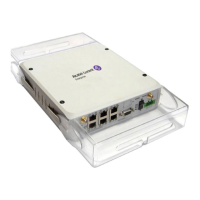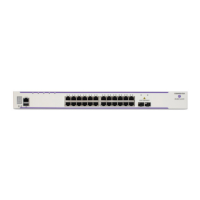Configuring Route Policy Components
438 7705 SAR OS Router Configuration Guide
Configuring a Default Action
Specifying a default action is optional. The default action controls those packets not matching
any policy statement entries. The default action is applied only to those routes that do not
match any policy entries.
If no default action is specified and there is no match, the packets will be accepted.
A policy statement must include at least one entry (see Configuring an Entry).
To enter the mode to create or edit route policies, you must enter the begin keyword at the
config>router>policy-options prompt. Other editing commands include:
•the commit command, which saves changes made to route policies during a session
•the abort command, which discards changes made to route policies during a
session
CLI Syntax: config>router>policy-options
begin
commit
abort
policy-statement name
default-action {accept |next-entry |
next-policy | reject}
as-path {add | replace} name
community {add | remove | replace} name
damping name
metric {add | subtract | set} metric
metric set [igp | metric]
preference preference
tag hex-string
type type
The following example displays default action configuration command usage. These
commands are configured in the config>router>policy-options context.
Example: config>router>policy-options# policy-statement "1"
policy-statement$ default-action accept
